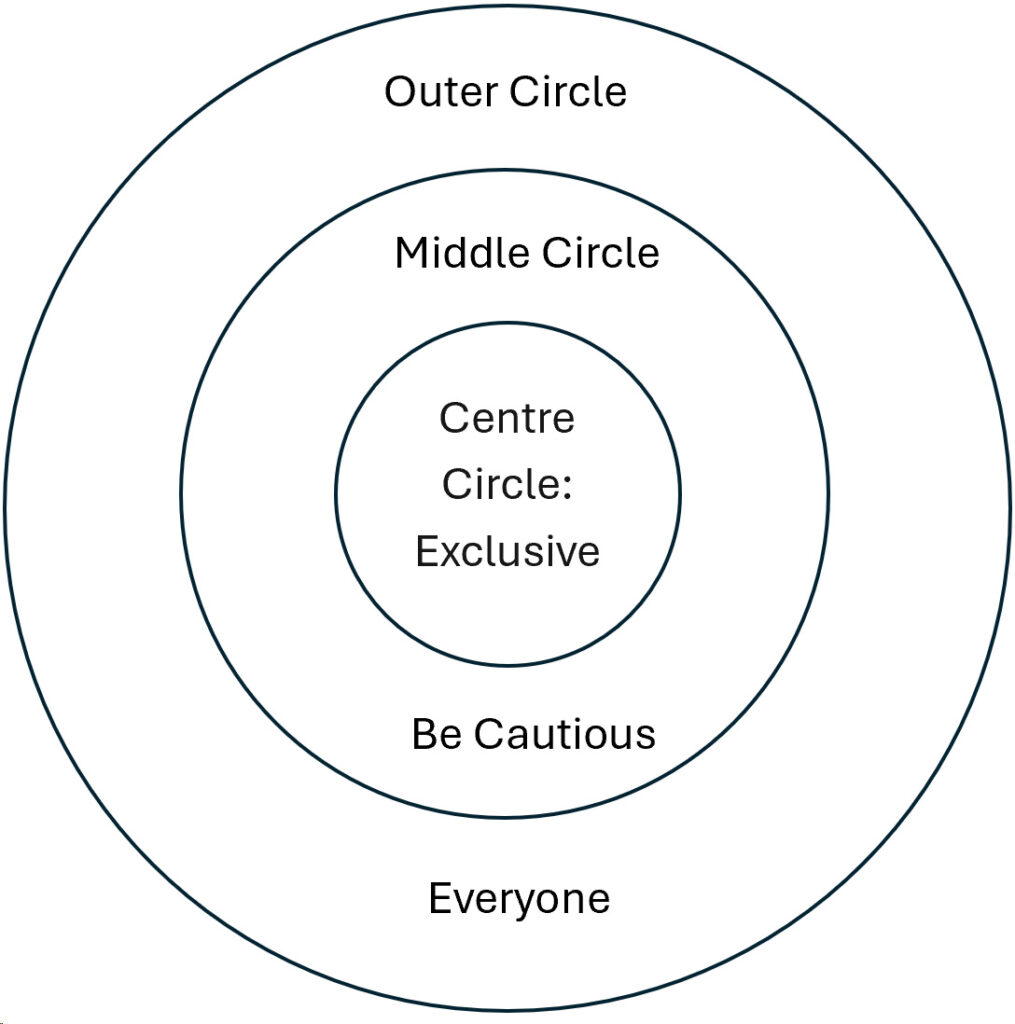

Registered Psychologist and Registered Marriage & Family Therapist
Here is an all-encompassing definition of infidelity: any type of conduct that violates your partner’s boundary expectations—whether implied or made explicit— of emotional, sexual, or romantic exclusivity within a committed, love relationship. This definition, of course, can include emotional boundary crossings, not just sexual.
A hurt spouse suffering from the negative impact of emotional infidelity already instinctively knows what emotional infidelity is when they see it and when they feel the effects of it, even if they cannot clearly define it. It is usually the involved spouse that isn’t there yet.
Where there is infidelity—whether emotional or sexual—there is usually some amount of secrecy and deception and one-on-one encounters—either in person, online, or by telephone—that are too chemistry-filled, too flirtatious, too intense, too long in duration, too emotionally vulnerable, or too revealing in self-disclosure.
In two previous articles I wrote, I described the concept of boundaries in a romantic relationship, using three concentric circles:

If you’ve discussed those three boundary areas with your partner, you might have had little trouble identifying exclusive behaviors and interactions that belong only in the centre circle. You probably agreed that sexual relations and romantic interactions such as making out or sensuous touch belonged only in that centre circle, only to be done with your partner, if there is an expectation of monogamy between you.
It is possible to reserve sexual intimacy for only one person without significant psychological or interpersonal costs. Emotional intimacy is different, however. If we reserved all our emotional intimacy for only one person, we would almost certainly become too isolated, less well-rounded and limited versions of our potential selves.
One possible answer is the ongoing act of emotionally tethering yourself to one person, binding yourself to him or her in commitment, or doing what couples psychologist Stan Tatkin says is the emotional and psychological equivalent of tying your right leg to your partner’s left leg and agreeing to run the three-legged race of life together. There isn’t anyone else in your life that you do that with.
You make your partner or spouse your primary attachment figure, the only one you face every obstacle with, the only one you associate with coming home emotionally and physically. If your partner was like your north star that kept you oriented when making decisions, prompting you to avoid decisions that would not be in your partner’s interest, you have an emotional compass that points only to him or her. That compass is what is in the centre circle. If you are in a monogamous relationship, there is no one or ought to be no one else in your life to whom you are as completely and emotionally tethered like this, not your parents, not your best friend outside your marriage, not your children, not your work.
If you were tethered primarily to your parents in this manner or your best friend outside your marriage, or your children, or your work and not to your partner, or more so than you are to your partner, then your marriage will suffer. Your partner will suffer.
To get an additional idea of what I mean by tethering to your primary attachment figure, ask yourself the following questions. Who is the primary person you wish you could turn to for comfort when you are distressed? If you’ve just received the best news of your life, who is the first person you want to call and share that news with? Who would you most prefer to have a two-hour long, heart-to-heart, intimate talk with at 11PM at night on the telephone (assuming you were into two-hour long talks on the telephone and had the energy at 11PM at night)? When you are visiting an interesting country or place that you’ve never been to before, by yourself, and you find a beautiful vista and you start to wish you weren’t alone watching it, who is the person in your mind that you wish you were watching it with? To whom have you allowed yourself to be most emotionally bonded?
It should be obvious now that I’m not saying your spouse is the only person who should meet all your emotional needs. That’s a big burden for anyone to carry. I’m not saying that meeting your emotional needs for intimacy and connection is an act solely reserved for that centre circle. Nor am I saying that your spouse is the only one you can turn to for emotional support when distressed or the only person with whom you ought to wish you could share those beautiful vistas.
I’m saying that what is inside that centre circle ought to be a desire that your spouse is the first person you think of turning to for emotional comfort, the one person you hope could be a witness to all the important achievements, all the heartaches, all the moments of weakness and triumph that make up your life. Inside that centre circle is an understanding that no one can or should replace the role of your spouse as your primary cheerleader, primary friend, and primary attachment figure.
Imagine that all the emotional attachments that you enjoy in your life can be represented by a large, extra-wide table laden with a feast. Surrounding that table are all the people in your life that you care about and that you have a relationship with. You have varying degrees of emotional connections with many of these important people.
There’s Becky, a good friend you’ve known since you were in high school, down the side of the table. There’s your father and your mother who have been your anchors and supporters all your life, near you. There’s your best friend wingman that you’ve known since you were two years old, who was your best man at your wedding, sitting a few chairs down from you, next to your brother and sister. There’s your cousin wingnut with whom you frequently managed to get into mischief. There’s your uncles and aunts and co-workers further down the table.
And there you are sitting at the head of that table. You’re at the head because it is your feast, and the table represents all the emotional attachments you have in your life. But you are not the only one there in a place of honor at the head of the table. There is a place setting beside you, a favored place reserved for your spouse or partner. (For the purposes of this analogy, your spouse has his or her own feast table also, with you in the favored chair).
What emotional infidelity feels like to your spouse is that your spouse approaches your table, perhaps having stepped away for a moment to take care of something important, expecting to see that empty spot waiting for him or her, only to find that when your spouse was temporarily away or not looking, someone else has taken that favored spot, and that your spouse’s seating assignment has been placed further down the sides of the table.
It’s not that you don’t love and appreciate your spouse anymore. It’s that your spouse no longer occupies that favored space at the head of the table (i.e. in your heart). It’s that you now treat your spouse differently, with somewhat less interest, somewhat less grace, somewhat less loyalty even, than you show to that person who now seems to have taken the place beside you at the head of the table.
Your spouse now notices the way your face glows a bit when you look at that person and is aware that your eyes don’t shine quite the same way when you look at your spouse. Your spouse now observes that you seem to treat this other person’s ideas and wishes as a priority while expressing frustration and resentment toward your spouse’s needs and ideas.
It is not lost on your spouse that you purchased an expensive piece of jewelry as a thank-you gift for this person when you normally aren’t inclined to give gifts and haven’t given jewelry to your spouse in quite some time. Your spouse now sees that you are ready to drop everything and go help this other person even at a time when your spouse really needs you. Your spouse now notices that you are very reluctant to hurt this other person’s feelings but do not seem to think twice about hurting your spouse’s feelings. Those are signs to your spouse that emotional infidelity is well under way.
The activity of seeking emotional comfort itself is not necessarily a centre circle activity, as long as your spouse remains your primary source of emotional comfort, your primary object of commitment, and any additional emotional comfort you receive is simply complimentary to that which is provided by your spouse, does not make your spouse feel threatened, and is not coming from someone that competes with your spouse for the favored chair at the head of your emotional attachment table. Emotional infidelity is when you redirect some or all the attention, energy, grace and focus that you would normally hold only for the person in that favored place at the head of the table beside you toward someone else, and no longer toward your spouse or in a diminished capacity toward your spouse.
The late Shirley Glass used a different analogy to describe this process, that of walls and windows. Normally, there is a window of total, full transparency into your heart that is fully accessible by your spouse, at least in theory. Between you and other people are barriers that control the type, quantity and quality of information that passes through, both ways.
For some people in your life the barriers are solid and impenetrable. You’ve chosen, for whatever reason, not to have a relationship with them anymore. For most other people in your life, the barriers are permeable, letting some information in and out, but not all.
The only one who has a true, open window instead of a barrier, the only one who has complete and total access to you, or ought to in principle, is your spouse or partner. Or, at minimum, the window between you and your spouse is wider, more permeable, and more revealing than any of the barriers between you and anyone else.
You enter emotional infidelity territory when you realign those walls and windows such that the window is now open to another person and your spouse feels like they are now behind a wall or barrier.
The pain of this betrayal runs deep, and takes one’s breath away, like being punched in the gut repeatedly. Then, on top of that, what hurts even more, going back to the feast table analogy, is that when the displaced spouse protests the change in seating assignments to their partner in life, the latter states that this other person given the favored spot is just a friend, that nothing has changed, that the displaced spouse is still at the table and shouldn’t overreact, and that the seating arrangements are not important. The seating arrangements are important. And the person saying this is not being totally honest with themselves about it. That intensifies the hurt.
If there has been emotional infidelity in your relationship, you may be wondering what to do about it. Providing a complete picture of the path forward is beyond the scope of this article, where I had hoped to define what emotional infidelity is clearly. However, the general way forward looks like this:
If the change in seating arrangement was fleeting and early on in the stages of emotional attachment, if your spouse is more concerned that they no longer occupy that favored spot at the table than they are about the threat of that other person in particular, if the other person is a friend to your marriage and does not make any effort to divide you, if you are willing to completely readjust your boundaries, you may be able to shift the seating arrangements and move that other person further down the table in your heart, back where they ought to be and restore your spouse’s place of honor at your side.
If, however, the friendship with this other person has progressed to a point of significant emotional attachment, even if it isn’t sexual yet, if your spouse is not at all comfortable with the presence of this other person in your life going forward, if you have started falling in love with this other person, then in my experience, what is typically necessary is that this other person’s place setting is removed from the table, and you do the work that is necessary to restore your spouse’s favored place at the head of the table, beside you, assuming your spouse is willing to be restored to that place.
Then, once the process of making amends and restoring the seating arrangements is well underway, there is usually quite a bit of additional work that needs to be done that involves learning to set healthy boundaries, establishing more open and vulnerable lines of communication between you and your spouse, repairing emotional injuries—potentially sustained by both of you, not necessarily just one of you— turning back toward each other to meet emotional needs, and creating stronger, deeper patterns of emotional intimacy, trust, and friendship between you. That work is done by both of you together. And that other person is never invited back to the table.
© 2025 Calgary Couples Counselling Centre Inc. | Web by KP Design | COVID Policies | PRIVACY POLICY